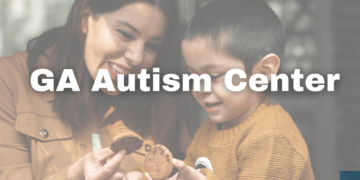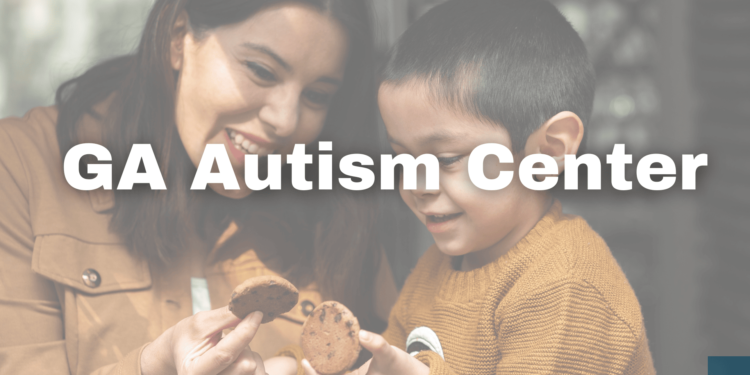When it comes to autism treatment, parents often face a crucial decision: Should they opt for a specialized GA autism center or rely on traditional therapy methods? With so many options available, choosing the right path can be overwhelming. Understanding the differences between specialized autism centers and conventional therapies can help you make an informed decision that best supports your child’s development and well-being.
Understanding Autism Treatment Approaches
Autism Spectrum Disorder (ASD) is a neurodevelopmental condition that affects social skills, communication, and behavior. While no one-size-fits-all treatment exists, a variety of therapies are available to help individuals with autism thrive.
Specialized GA autism centers provide comprehensive, tailored care for children with ASD, while traditional therapy methods, such as occupational therapy, speech therapy, and cognitive behavioral therapy, focus on specific developmental areas. Let’s explore the benefits of both approaches to help you determine the best option for your child.
What Is a GA Autism Center?
A GA autism center is a specialized facility that focuses exclusively on autism treatment. These centers offer evidence-based therapies, structured environments, and professional guidance to support children with autism in developing essential skills. Services at autism centers may include:
- Applied Behavior Analysis (ABA) Therapy
- Speech and Language Therapy
- Occupational Therapy
- Social Skills Training
- Parental Support and Training
- Individualized Education Programs (IEP) Support
These centers are staffed with professionals who specialize in autism care, ensuring that your child receives personalized attention and evidence-based interventions.
What Is Traditional Therapy for Autism?
Traditional therapy refers to treatments commonly used for individuals with autism, but not necessarily in an autism-specific setting. This may include:
- Occupational Therapy (OT) – Helps improve motor skills, sensory processing, and daily living skills.
- Speech Therapy – Aims to improve communication skills, both verbal and non-verbal.
- Cognitive Behavioral Therapy (CBT) – Addresses anxiety, emotional regulation, and social interaction.
- Physical Therapy (PT) – Helps improve balance, coordination, and strength.
- Educational Therapy – Supports academic growth and learning strategies.
These therapies can be effective but may not always offer the comprehensive, autism-focused approach that a GA autism center provides.
Key Differences: GA Autism Center vs. Traditional Therapy
1. Personalized Approach
- GA Autism Centers: Provide individualized treatment plans tailored to each child’s specific needs, based on in-depth assessments and ongoing progress monitoring.
- Traditional Therapy: Offers more generalized treatment approaches that may not be autism-specific.
2. Structured Environment
- GA Autism Centers: Feature structured, autism-friendly environments that minimize distractions and promote learning.
- Traditional Therapy: Often conducted in less structured settings, such as hospitals, schools, or private clinics.
3. Multidisciplinary Care
- GA Autism Centers: Offer a multidisciplinary approach, integrating multiple therapies under one roof for holistic treatment.
- Traditional Therapy: Requires parents to coordinate between different specialists, often at separate locations.
4. Parental Involvement & Training
- GA Autism Centers: Provide training and support to help parents reinforce skills at home.
- Traditional Therapy: Focuses mainly on individual therapy sessions, with less emphasis on parental training.
5. Social Skill Development
- GA Autism Centers: Offer peer interaction opportunities, helping children develop social skills in a structured setting.
- Traditional Therapy: May not provide as many opportunities for group-based social interaction.
6. Consistency & Routine
- GA Autism Centers: Follow structured routines, which are crucial for children with autism.
- Traditional Therapy: Sessions may be less structured, depending on the therapist’s approach.
Benefits of Choosing a GA Autism Center
1. Evidence-Based Therapies
GA autism centers prioritize therapies backed by scientific research, such as ABA therapy, which is widely recognized as the most effective treatment for autism.
2. Comprehensive Care
Since autism centers integrate multiple therapies, children receive well-rounded support that addresses all aspects of their development.
3. Professional Expertise
Autism centers employ trained specialists, including BCBAs (Board Certified Behavior Analysts), speech-language pathologists, and occupational therapists, ensuring high-quality care.
4. Peer Interaction Opportunities
Unlike traditional therapy, which is often one-on-one, autism centers provide group activities that foster social skills development.
When Is Traditional Therapy a Better Option?
While GA autism centers offer many advantages, traditional therapy may be a better fit in certain situations:
- If your child has mild autism and requires only specific support, such as speech or occupational therapy.
- If your child responds well to general therapy settings and does not require an intensive, structured program.
- If you prefer a more flexible schedule, as autism centers often have structured timetables, while private therapy sessions can be more accommodating.
How to Choose the Right Approach for Your Child
Consider These Factors:
- Your Child’s Needs: If your child requires comprehensive, autism-specific care, a GA autism center may be the best choice.
- Budget & Insurance Coverage: Check if your insurance covers autism center services or traditional therapy.
- Availability & Location: Research autism centers and traditional therapy providers near you.
- Parental Preferences: Decide how much involvement and training you would like as a parent.
Conclusion: Which Option Is Right for Your Child?
Both GA autism centers and traditional therapy have their own advantages, and the best choice depends on your child’s unique needs.
If your child requires a structured, multidisciplinary approach with access to autism experts and peer interaction, a GA autism center is the ideal choice. However, if your child needs targeted support for speech, motor skills, or emotional regulation, traditional therapy may be sufficient.
No matter which option you choose, early intervention and consistency are key to helping your child thrive. If you’re looking for a trusted GA autism center, Creekside Autism provides specialized care to support children on their autism journey. Contact us today to learn more about our programs and how we can help your child reach their full potential!
Digital marketing is the use of the internet and electronic devices to promote products or services. It includes tactics like social media ads, email campaigns, search engine optimization (SEO), and online content to connect businesses with potential customers. It's a fast, targeted, and measurable way to reach people where they spend their time—online.

























































